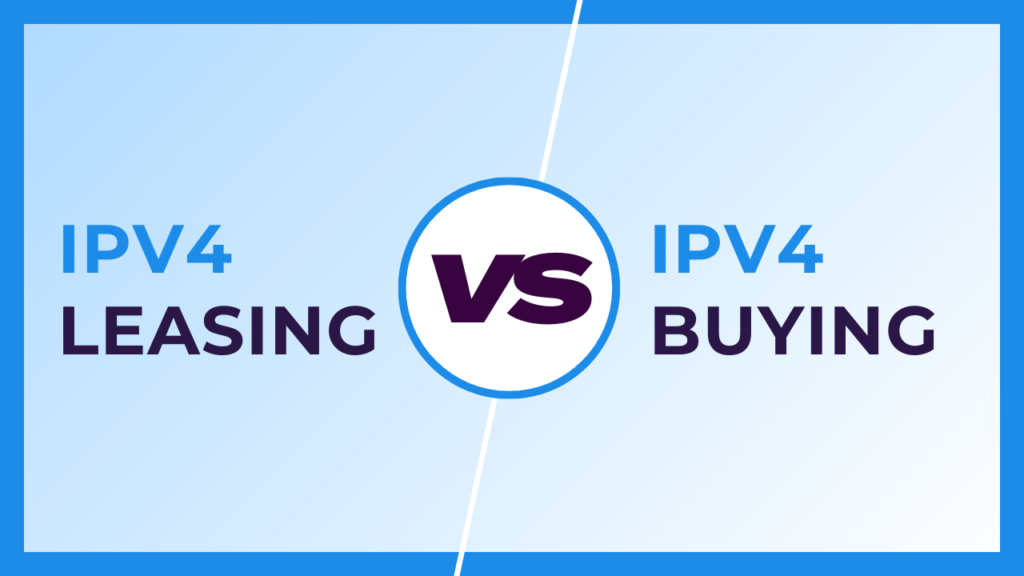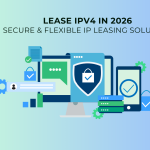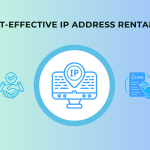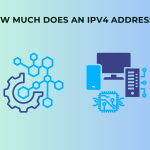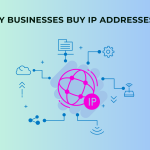IPv4 Leasing vs Buying
In the digital age, the significance of Internet Protocol (IP) addresses cannot be overstated. These addresses form the backbone of internet operations, facilitating seamless communication and data exchange between devices. Among them, IPv4 remains the most prevalent. However, businesses often face a crucial decision: should they lease or buy IPv4 addresses? This article delves into a detailed cost-benefit analysis of both options to aid businesses in making informed choices.
Benefits of Leasing IPv4 Addresses
Leasing IPv4 addresses can be advantageous under various circumstances:
- Uncertain Future Needs: Ideal for businesses with fluctuating requirements or uncertain growth projections.
- Cash Flow Management: Helps conserve capital with manageable periodic payments.
- Transitioning to IPv6: Useful during the transition period without committing to long-term ownership.
- Avoiding Transfer Fees: Saves costs associated with address transfers.
Benefits of Buying IPv4 Addresses
Buying IPv4 addresses offers distinct advantages for businesses planning long-term strategies:
- Assured Long-Term Growth: Suitable for businesses with stable and predictable growth trajectories.
- Potential Price Appreciation: IPv4 addresses are expected to increase in value, presenting an investment opportunity.
- Future-proofing: Essential for businesses anticipating sustained or increased reliance on IPv4.
- Complete Control: Provides autonomy over IP management and usage.
Key Considerations for Decision Making
When deciding between leasing and buying IPv4 addresses, consider these critical factors:
- Budget Constraints: Evaluate available capital and financial flexibility.
- Duration of Use: Determine whether the addresses are needed short-term or for prolonged periods.
- Business Growth: Assess growth forecasts and scalability requirements.
- Technical Expertise: Consider internal capabilities for IP management.
Market Dynamics: Monitor market trends affecting IPv4 availability and pricing.
Conclusion
Both leasing and buying IPv4 addresses offer unique benefits tailored to different business needs. Leasing provides flexibility and cost-effectiveness for variable demands, whereas buying ensures long-term savings, control, and potential investment returns. By aligning their financial capabilities, growth strategies, and technical expertise, businesses can make informed decisions that optimize their IP resource management and support their digital objectives effectively.
Frequently Asked Questions
The choice depends on your business needs. Leasing is cost-effective for short-term projects or when flexibility is crucial, while buying is preferable for long-term stability and control.
Leasing IPv4 addresses offers several advantages:
- Lower Initial Costs: Minimal upfront investment compared to buying.
- Flexibility: Ideal for temporary projects or fluctuating needs without committing to long-term ownership.
Reduced Administrative Burden: Lessor typically handles IP management and maintenance.
Yes, there are risks to consider:
- Recurring Costs: Ongoing lease payments can accumulate over time.
- Dependency on Lessor: Reliance on the lessor's policies and operational reliability.
Potential Reputational Issues: Previously misused IPs could be blacklisted, impacting business operations.
Yes, IPv4 addresses can be legally sold. They are often considered appreciating assets due to their scarcity and increasing demand.
Consider these factors:
- Project Duration: Short-term projects often benefit from leasing, whereas long-term projects may justify purchasing.
- Budget: Leasing requires lower initial funds, making it suitable for limited budgets.
Long-Term Needs: Assess whether ongoing access to IPv4 addresses is necessary or if future growth plans require ownership and control.

